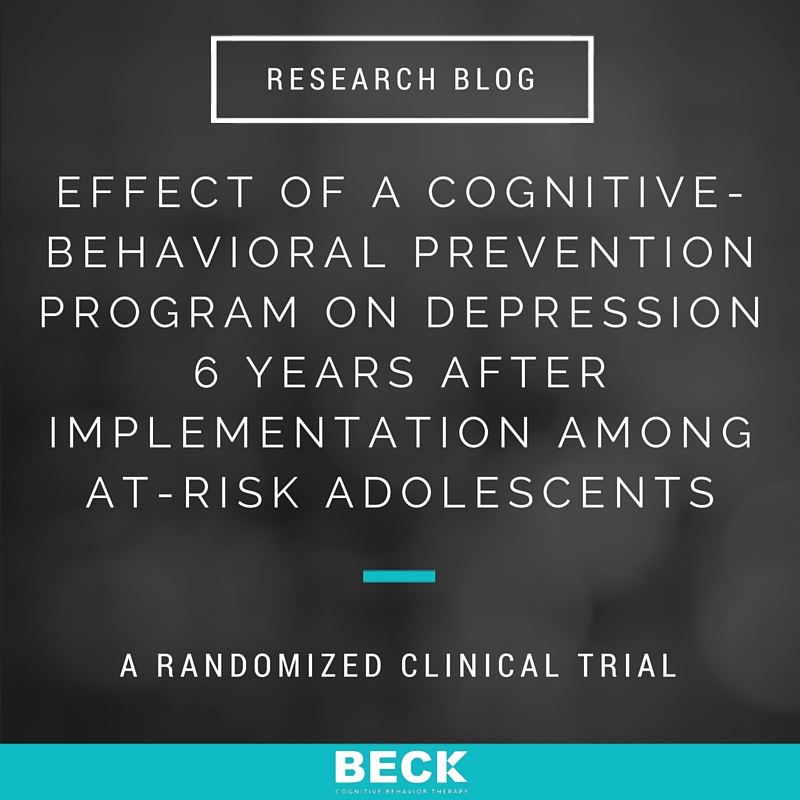Effect of a Cognitive-Behavioral Prevention Program on Depression 6 Years After Implementation Among At-Risk Adolescents A Randomized Clinical Trial
Importance
Adolescents whose parents have a history of depression are at risk for developing depression and functional impairment. The long-term effects of prevention programs on adolescent depression and functioning are not known.

Objective
To determine whether a cognitive-behavioral prevention (CBP) program reduced the incidence of depressive episodes, increased depression-free days, and improved developmental competence 6 years after implementation.
Design, Setting, and Participants
A 4-site randomized clinical trial compared the effect of CBP plus usual care vs usual care, through follow-up 75 months after the intervention (88% retention), with recruitment from August 2003 through February 2006 at a health maintenance organization, university medical centers, and a community mental health center. A total of 316 participants were 13 to 17 years of age at enrollment and had at least 1 parent with current or prior depressive episodes. Participants could not be in a current depressive episode but had to have subsyndromal depressive symptoms or a prior depressive episode currently in remission. Analysis was conducted between August 2014 and June 2015.
Interventions
The CBP program consisted of 8 weekly 90-minute group sessions followed by 6 monthly continuation sessions. Usual care consisted of any family-initiated mental health treatment.
Main Outcomes and Measures
The Depression Symptoms Rating scale was used to assess the primary outcome, new onsets of depressive episodes, and to calculate depression-free days. A modified Status Questionnaire assessed developmental competence (eg, academic or interpersonal) in young adulthood.
Results
Over the 75-month follow-up, youths assigned to CBP had a lower incidence of depression, adjusting for current parental depression at enrollment, site, and all interactions (hazard ratio, 0.71 [95% CI, 0.53-0.96]). The CBP program’s overall significant effect was driven by a lower incidence of depressive episodes during the first 9 months after enrollment. The CBP program’s benefit was seen in youths whose index parent was not depressed at enrollment, on depression incidence (hazard ratio, 0.54 [95% CI, 0.36-0.81]), depression-free days (d = 0.34, P = .01), and developmental competence (d = 0.36, P = .04); these effects on developmental competence were mediated via the CBP program’s effect on depression-free days.
Conclusions and Relevance
The effect of CBP on new onsets of depression was strongest early and was maintained throughout the follow-up period; developmental competence was positively affected 6 years later. The effectiveness of CBP may be enhanced by additional booster sessions and concomitant treatment of parental depression.
Brent, D. A., Brunwasser, S. M., Hollon, S. D., Weersing, V. R., Clarke, G. N., Dickerson, J. F., Beardslee, W. R., … Garber, J. (January 01, 2015). Effect of a cognitive-cehavioral prevention program on depression 6 years after implementation among at-risk adolescents: A randomized clinical trial. Jama Psychiatry, 72, 11, 1110-8.